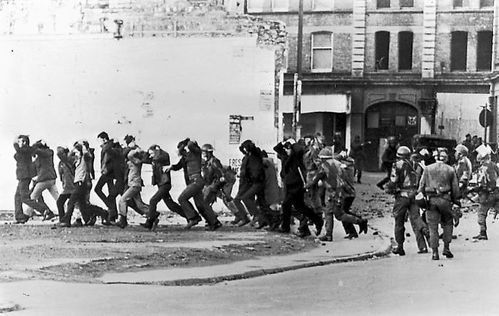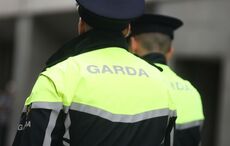Social Democratic and Labour Party (SDLP) leader Colum Eastwood plans to nominate the families of Bloody Sunday victims for the Nobel Peace Prize later this year.
Speaking ahead of the 51st anniversary of Bloody Sunday, SDLP leader Colum Eastwood said the nomination would be a fitting tribute to the families' "long fight for truth and justice".
Eastwood said he could think of no better tribute, to the families who had "faced down the might of the British establishment" during their quest for justice.
"They have faced down the might of the British establishment who tried to cover up the events of that dreadful day, blackening their loved one's names in the process," Eastwood said.
"But they never stopped fighting for what was right and remain an inspiration to oppressed people everywhere."
The Bloody Sunday families and their dignified battle for truth and justice for their loved ones against the British establishment are an inspiration.
They epitomise the values of our shared future, and I’m delighted to nominate them for the Nobel Peace Prize. pic.twitter.com/K6crUJrUBJ
— Colum Eastwood ?? (@columeastwood) January 29, 2023
The deadline for nominations for the Nobel Peace Prize is the end of January, while a shortlist of roughly 20-30 candidates is announced in March.
The Nobel Peace Prize winner is announced in October and presented with the award in December.
Monday, January 30, marks the 51st anniversary of Bloody Sunday when members of the British Army's Parachute Regiment opened fire on a civil rights march in Derry, killing 13 and leaving 15 others wounded.
A 14th man, John Johnston, died months after Bloody Sunday. His death has been attributed to the injuries he suffered.
An inquiry conducted in the immediate aftermath of Bloody Sunday led by then-chief justice Lord Widgery cleared the soldiers of all blame and was largely dismissed as a whitewash.
After years of tireless campaigning from the families of the Bloody Sunday victims, former British Prime Minister Tony Blair ordered a new inquiry in 1998.
In 2010, the Saville Inquiry found that none of the victims were posing a threat of causing death or severe injury, leading then-British Prime Minister David Cameron to apologize in the House of Commons and describe the killings as "unjustified and unjustifiable".




Comments